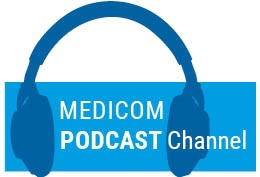https://doi.org/10.55788/48cda739
Bipolar disorder is a complex disease with both high intra- and inter-individual variability in clinical presentation. In addition, several patients have low illness insight, especially during phases. At routine medical visits, patients might have recall bias, which makes it difficult for the caregiver to evaluate their clinical condition. In recent years, smartphones have been welcomed as a useful tool for the monitoring and treatment of patients. Dr Maria Faurholt-Jepsen (Rigshospitalet, Denmark) reviewed the current evidence regarding the effectiveness of smartphone-based treatment of bipolar disorder [1].
Although the number of publications on the use of smartphones in mental health has increased rapidly in recent years (not in the least due to the COVID-19 pandemic), the number of publications on treatment effects is still very limited, Dr Faurholt-Jepsen explained [2]. To examine the efficacy of smartphone-based interventions in bipolar disorder, the researchers performed a meta-analysis of 13 articles, of which 7 were randomised-controlled trials including 479 individuals [3]. In these trials, the effects of smartphone-based interventions were compared with the effects of usual treatment, control smartphone, paper-pencil monitoring, or a waiting list. Interventions were self-monitoring, cognitive behaviour therapy, skill training, psychoeducation, medical reminders, and more. Outcome measures of the studies included symptoms, functioning, perceived stress, quality-of-life, relapse, and psychiatric readmission.
In these 7 studies, the smartphone-based intervention had overall no significant effect, Dr Faurholt-Jepsen concluded. “In light of the hype of smartphone-based interventions, it is important to be aware that there is no clear evidence that these actually work.” On the contrary, in some studies, smartphone-based interventions even had a negative effect on patients, she remarked.
Dr Faurholt-Jepsen called upon researchers to carefully design future trials, including the use of well-defined parameters (like adherence, usability, acceptability, and feasibility), well-defined patient populations, and well-defined baseline symptoms.
- Faurholt-Jespen M, et al. Smartphone-based treatment in bipolar disorders. Abstract S08.04, ECNP Congress 2022, 15–18 October, Vienna, Austria.
- Torous J, et al. World Psychiatry. 2021;20:318–335.
- Anmella G, et al. Bipolar Disord. 2022;24:580–614.
Copyright ©2022 Medicom Medical Publishers
Posted on
Previous Article
« Mode of action of psilocybin Next Article
VR exposure as effective as in vivo exposure for phobia »
« Mode of action of psilocybin Next Article
VR exposure as effective as in vivo exposure for phobia »
Table of Contents: ECNP 2022
Featured articles
Letter from the Editor
New Medications
Zuranolone shows rapid-acting efficacy in postpartum depression
Probiotics could reduce perceived stress
KarXT is effective in schizophrenic patients experiencing acute psychosis
Low-dose ulipristal acetate is an effective treatment for PMDD
New Findings
Endogenous oxytocin release helps the mind to deal with pain
Nitric oxide synthase genetic variant is a risk factor for suicidal behaviour
Early-life gut microbiota depletion changes brain morphology and behaviour
Digital Technology
Treating intrusive memories after trauma in healthcare workers using Tetris
VR exposure as effective as in vivo exposure for phobia
Efficacy of smartphone-based treatment of bipolar disorders not (yet) validated
Psilocybin
Mode of action of psilocybin
Fast and sustained effect of 2 administrations of psilocybin on depression
Antidepressant properties of psilocybin might be related to changes in sleep
Peripartum Neurobiology
Both sex hormones and serotonin play a role in peripartum mental health
Child loss induces short- and long-term neurobiological changes
Reproductive state matters when looking at the female brain and drug treatment effects
Miscellaneous
Different brain responses to fat and/or sugar
Diabetes not related to abnormal biomarkers of Alzheimer’s disease
Oxytocin treatment induces long-lasting neurobiological adaptations in autism
Related Articles
November 28, 2022
Different brain responses to fat and/or sugar

November 2, 2020
ECNP 2020 Highlights Podcast
© 2024 Medicom Medical Publishers. All rights reserved. Terms and Conditions | Privacy Policy
HEAD OFFICE
Laarderhoogtweg 25
1101 EB Amsterdam
The Netherlands
T: +31 85 4012 560
E: publishers@medicom-publishers.com

